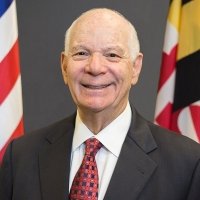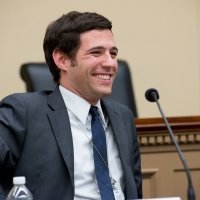The Ties That Bind
The COVID-19 pandemic exposed long-standing vulnerabilities in U.S. and global supply chains. The Wilson Center is proud to announce the publication of a report from The Helsinki Commission, “The Ties That Bind,” that examines these vulnerabilities and suggests a variety of policy solutions, with an emphasis on the rule of law and international cooperation.
Wilson Center President & CEO, Ambassador Mark Green, hosted a public conversation on supply chain security with Senator Ben Cardin (D-MD), Chair of the Helsinki Commission. This session was followed by a discussion of the Helsinki Commission report with the authors and expert analysts who addressed threats to U.S. and global supply chains and possible policy responses.
Panelists discussed the present risks and vulnerabilities as well as the opportunities to secure global supply chains through the rule of law. This event launches the Wilson Center’s “Critical Supply Chains Initiative”, which brings together industry leaders, policymakers, and other stakeholders to answer some of the most pressing questions relating to America’s supply chains.
Event Snapshots
- Rule of law and corruption are two sides of the same coin in critical supply chain security.
- To strengthen global supply chain security and resilience, we must strengthen and deepen commitments with trusted partners to combat corruption and authoritarian regimes.
- Transparency at all levels is key to ensure resilient, secure, and democratic supply chains.
Selected Quotes
Senator Ben Cardin, Maryland’s senior senator, Chairman of the Helsinki Commission
"Make no mistake about it, the Belt and Road initiative is founded in corruption and ignoring the rule of law, and we saw during COVID-19 our vulnerability here. We really do have a major vulnerability to a secure supply chain by the Belt and Road Initiative, and it is using economic pressure on countries, particularly in Africa, but also we see in our own hemisphere, and globally by China, to use their economic influence to dominate the trade agreements, and once they do that, they control the intellectual property, whether they developed it or not, they determine all the rules of the game, and it's anything but a secure supply chain from any standard that we're interested in."
Paul Massaro, Policy Advisor, Helsinki Commission
"Commerce without the rule of law is authoritarianism. Commerce is bolstered by the rule of law. That’s what makes it sustainable, that’s what makes it fair, and that’s really what makes it meaningful. So, we need to put values first….values before short term economic gains, and this report is part of a larger push for a proper paradigm shift in thinking about supply chains, and thinking about global economics, and thinking about globalization, where we say, hey, human rights, democracy and the rule of law is first, and then we worry about short term economic gains because we're gonna have a lot more economic prosperity in the long run, as well as freedom and security in the long run, if we put values first. "
Elaine Dezenski, Chief Growth Officer, Blank Slate Technologies
"We certainly have to acknowledge that supply chains are run and driven by the private sector so, we do need to think about incentives to move systems in the right way. Governments coming in to address rule of law, and that overarching governance framework, is absolutely proper and appropriate, and that needs to trickle down into how systems are working, but we also need to think about, how can we build on existing programs and incentives where private sector entities have already bought into a higher degree of security, and one that immediately came to mind is looking at programs like the Custom Trade Partnership Against Terrorism."
Delia Ferreira, Chair of the Board of Directors, Transparency International
"It is time to move to action. We are fed up with commitments. Commitments are great, wonderful symbolic things, but they are all there. We don't need new commitments. We need to implement what we have. And also, we need to implement and enforce the rules that we have. Of course, legislation and conventions can be improved or can be adapted or modernized if you want, but the legal infrastructure to fight against corruption is already there."
Speakers







